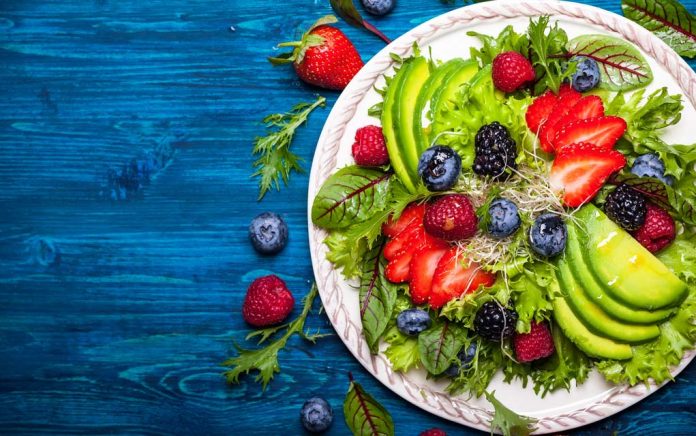
You may be familiar with the expression “You are what you eat.” But that isn’t entirely accurate. A more precise statement would be “You are what you eat and ultimately digest and absorb.” Admittedly the second expression is not as sexy as the first one, but it zeros in on the core of nutritional health.
You can premium gas in your car, but if there are holes in your gas line and gas tank or your fuel pump is dysfunctional, your car is not going to function properly. Similarly, if you choose high-quality, organic foods yet your body is lacking the tools it needs to properly metabolize and utilize the nutrients, then your health will suffer.
Among the critical tools your body uses to digest and absorb food and its nutrients are enzymes. You need a healthy supply of these chemicals to break down the food you eat into elements that your body can then utilize.
What are Enzymes?
Enzymes are specialized chemicals (proteins) produced by the pancreas, gallbladder, and liver. These chemicals speed up the rate of biochemical reactions in the body without being used up or consumed themselves.
The enzymes most people are familiar with are the digestive enzymes, which are charged with metabolizing macromolecules (protein, fat, carbs) into smaller pieces that the body can more easily utilize and absorb. The four main types of digestive enzymes are lipases (break down fat), amylases (break down large carbs), invertases (break down simple sugars), and proteases (aka, proteolytic enzymes, which break down proteins).
Read more: 5 Ways to Better Absorb Vitamins and Minerals
Overall, however, the body produces more than 3,000 different enzymes, and there are likely thousands more yet to be discovered. While many are involved in various aspects of digestion, others spend their time the performing other tasks, ranging from energy production to fighting infections, promoting healing, transporting nutrients into cells, eliminating toxins, regulating hormones, reducing inflammation, and slowing aging.
Why You Need Enzyme Supplements
In an ideal world, your body produces all the digestive enzymes you need, they all reach their destinations, and they perform their jobs exceptionally well. In the real world, you don’t always have enough digestive enzymes. Raw and cultured foods provide enzymes to complement those already manufactured in the body. Cooking and pasteurization destroy enzymes, however, and we have largely replaced raw foods with refined, processed products. In addition, dysfunctions or problems with the pancreas, gallbladder, or liver can have a negative impact on enzyme production.
Another challenge we have concerning enzyme production is aging. Around age 30, pancreatic enzyme production begins to decline. Declining enzyme levels also can occur when the bacterial environment in the gut is out of balance.
The answer to a loss of enzymes is to consume more raw or cultured foods rich in enzymes, take probiotics (to support gut health), and consider a high-quality enzyme supplement.
What is Enzyme Therapy?
Enzyme therapy involves taking one or more enzymes to resolve deficiencies, treat disease, or restore balance. When enzymes are taken specifically to address enzyme deficiencies, it is usually referred to as enzyme replacement therapy.
Pancreatic enzyme supplements are usually derived from animal sources (although there are vegan sources as well) and are used to promote digestion and the immune system. Plant enzymes are typically used for digestive issues and are sourced from foods such as papaya and pineapple. Often you will find enzymes from several sources in digestive supplements. Metabolic enzymes are used to manufacture new cells and repair cell and tissue damage.
The Benefits of Enzyme Therapy
It’s a good idea to increase the amount of natural, raw, and cultured foods in your diet to help reduce your body’s burden to produce its own enzymes and fight the natural decline of these essential biochemicals. Although all raw foods contain enzymes, the best sources include sprouted seeds and legumes, followed by papaya, avocado, pineapple, kiwi, mango, bee pollen, raw honey, raw dairy, coconut oil, and extra virgin olive oil.
A combination of research and anecdotal reports support the use of enzyme therapy to help prevent and treat a variety of health challenges:
1. Digestive problems. Symptoms such as bloating, constipation, and abdominal discomfort can be associated with low production of enzymes. It is recommended you take digestive enzymes with meals.
2. Cellulite. According to Josh Axe, MD, certain enzymes can be helpful in breaking down and eliminating cellulite. These enzymes include serrapeptase, nattokinase, and bromelain, which can dissolve the tissue (fibrinogen) that bonds cellulite tissue.
3. Inflammation and pain. A number of enzymes, including proteolytic enzymes (e.g., bromelain) and systemic enzymes (e.g., serrapeptase) have demonstrated an ability to reduce pain and inflammation associated with arthritis. One way bromelain, which is extracted from pineapple, reduces inflammation is by blocking the signals from inflammation-promoting chemicals.
Read more: The Amazing Health Benefits of Serrapeptase
4. Skin conditions. Certain enzymes can help support and promote skin health in two main ways: exfoliating and fighting inflammation. In the former category, fruit enzymes such as pineapple, blueberry, and papaya, when applied to the skin, can break down keratin protein and leave your skin looking and feeling smooth. In the latter category, taking lipase or phospholipase enzymes can help protect your skin against sun damage, environmental pollutants, and the development of acne.
5. Heart health. Enzymes can help promote heart health in several ways. One is their ability to fight inflammation, a factor that is key in the occurrence of heart attack and stroke. Another has to do with the fact that heart muscle regenerates itself at a rate of about 1 percent per year on average. One thing that may help to accelerate this renewal rate is the use of proteolytic enzymes, which can enhance the body’s natural ability to heal.
6. Alzheimer’s disease. Researchers are investigating how they might use an enzyme called BACE2 to treat and possibly even prevent Alzheimer’s disease. BACE2 has been shown to destroy beta-amyloid, a protein that accumulates in the brains of individuals with this form of dementia. It’s still too early in the investigative process to know how much of a role BACE2 may have in fighting Alzheimer’s disease.
7. Food allergies and intolerance. Anyone who doesn’t produce enough pancreatic enzymes has an increased chance of experiencing food allergies. Taking pancreatic enzymes (proteases) can break down protein allergens and also help block allergic reactions. Therefore, enzymes can help prevent as well as fight food allergies. Another way enzymes can help with food allergies is by enhancing immune system functioning.
Once enzymes enter the bloodstream and circulate throughout the body, they can reduce inflammation, assist in removing waste from the body, and promote healthy bacteria in the gut. Taking a protease (e.g., pancreatin) 30 to 60 minutes before or after a meal can be beneficial for those experiencing food allergies. If you have food intolerance(s), taking the right enzymes with the offending food(s) may eliminate your problem. Therefore, protease enzymes should be taken if you cannot tolerate protein, amylase enzymes for carbs, lipase enzymes for fats, lactase for dairy products, and alpha-galactosidase for beans and other vegetables. If you are uncertain which foods bother you, take an enzyme supplement that includes more than one type of enzyme.
Choosing and taking enzyme supplements:
- Select supplements that contain several types of enzymes
- Choose products that are all-natural and free of additives and allergens
- Pick enzyme supplements that contain enzymes specifically for your needs; that is, bromelain and papain are for digestive issues while serrapeptase and nattokinase can address fibrinogen (to address cellulite)
- When taking enzymes for digestive problems, consume them with meals. Enzymes taken for other reasons should be taken on an empty stomach so they will be absorbed into the bloodstream and not digested with your food.
Sources:
Abdul-Hay SO et al. Identification of BACE2 as an avid B-amyloid-degrading protease. Molecular Neurodegeneration 2012; 7:46
Advanced supplemental therapies. What is arthritis?
Dr Axe. 6 natural cures for cellulite.
Baseline of Health Foundation. Heart muscle can renew itself.
Cichoke AJ. Enzymes to the rescue. Better Nutrition 2000 Sept.
Mercola.com. The type of food that will slow nearly everyinflammatory disease.
Onken JE et al. Bromelain treatment decreases secretion of pro-inflammatory cytokines and chemokines by colon biopsies in vitro. Clinical Immunology 2008; 126(3): 345-52 Self. What do enzymes do for your skin?










